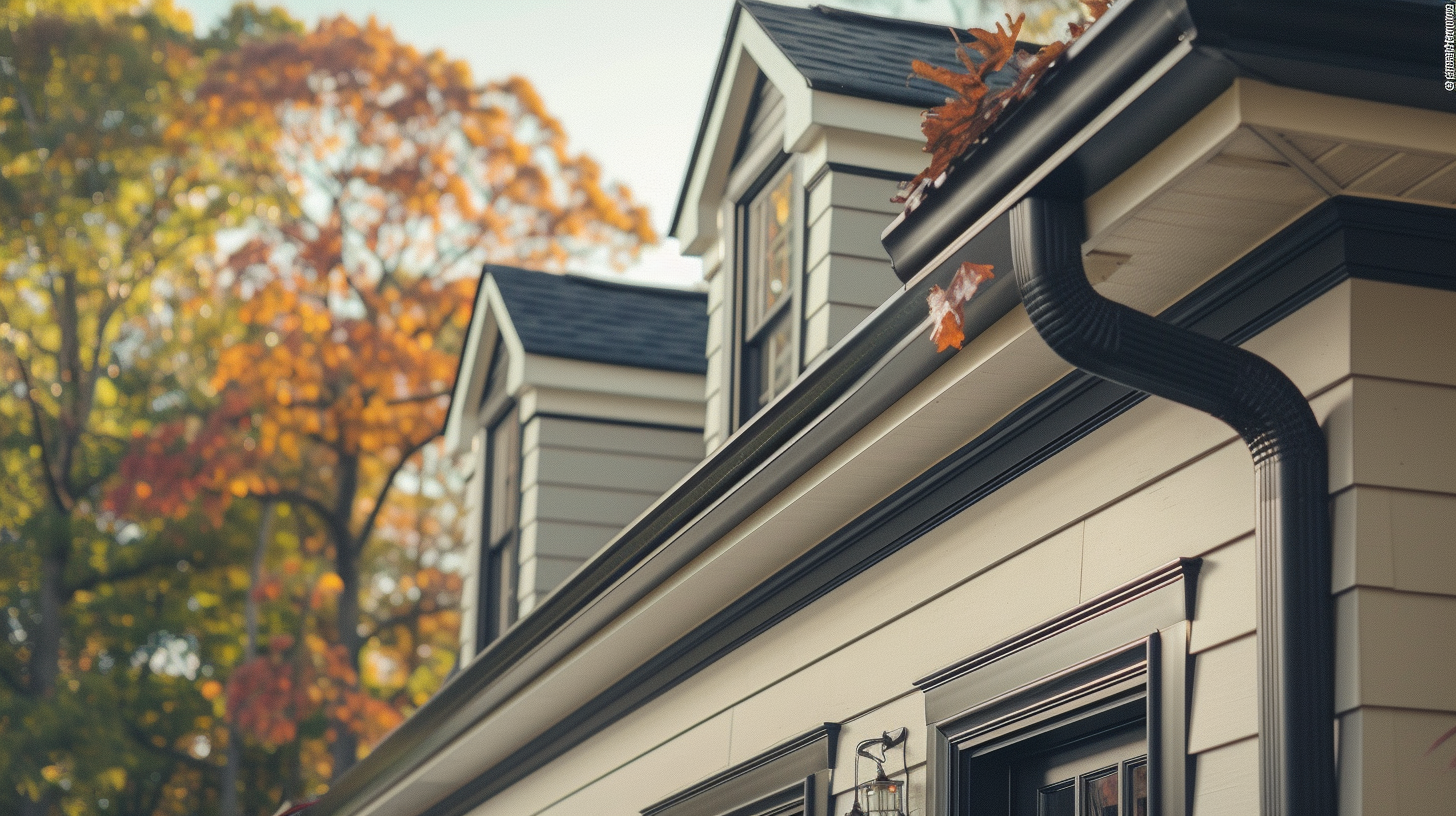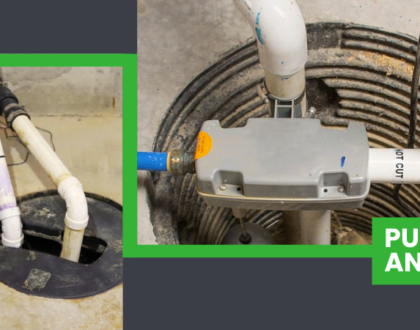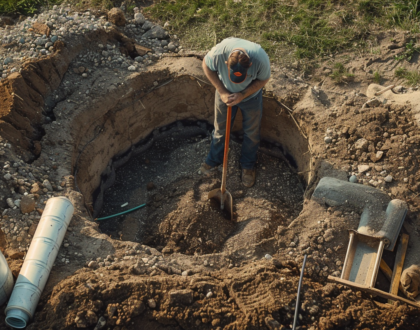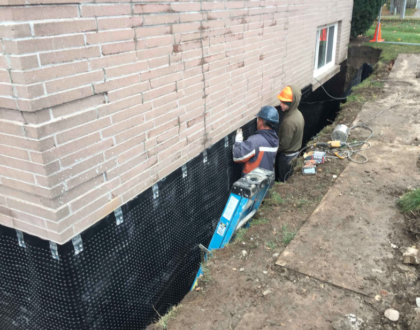How to keep your home safer and more dry.

How to prevent water damage. The answer is…gutters
One of the most effective ways to protect your home from water damage is with a gutter system.
Do gutters prevent your basement or crawlspace from flooding?
Will they cause ice dams during the colder seasons?
How do you prevent water damage?
Are gutters worth having?
Do they add value?

Gutters play a major role in protecting your home’s foundation from water damage. Yet, they often go overlooked until problems arise. Preventing water damage begins with controlling water with a gutter system that redirects water away from your home.
Here in the Triangle area, varying weather conditions can challenge even the most well-built homes, which makes a properly functioning gutter system a necessity. Consider it as a redistribution system that acts as a water defense mechanism for your home.
Why gutters matter so much
Gutters are your home’s first line of defense against foundation erosion, water damage, and unwanted mold growth.
They channel rainwater away from your home, preserving the integrity of your foundation and landscaping. But when they’re clogged, damaged, or poorly installed, the consequences can quickly become evident, particularly in your crawl space or basement.
The risks of NOT having gutters
Not having a gutter system can lead to several issues including:
- Soil erosion around the foundation, which compromises structural integrity.
- Water pooling near the home can cause basement flooding, leading to mold and mildew growth.
- Water damage to siding, windows, and doors, decreasing the home’s aesthetic and structural value.
Plus, the lack of proper water management can ruin landscaping and create hazardous icy conditions on sidewalks and driveways during winter.
Without properly redistributing water, it poses a risk to the physical structure and your home’s overall value and safety.
Debunking myths about gutters
Gutters cause ice dams
False. Ice dams are caused by poor attic insulation and ventilation, not gutters. Properly installed gutters help manage water in all seasons.
All gutter guards are maintenance-free
False. While gutter guards reduce debris accumulation, no system is entirely maintenance-free; regular checks are still needed.
Resistance against getting gutters
– “Gutters ruin the aesthetic of my home.” Modern gutters come in various styles and colors that can complement your home’s exterior.
– “Gutters are too expensive.” Considering the costly repairs from water damage gutters can prevent, they are a cost-effective investment in the long-term health of your home.
How to determine if you need gutters
To assess if your home needs a gutter system, inspect for water damage or pooling water, consider the property’s slope, the local water table, and area flooding history.
High humidity levels in crawl spaces and standing water post-rainfall are telltale signs.
Gutters add value
A well-maintained gutter system adds significant value and desirability to your home. It enhances curb appeal, protects the structural integrity, and can make your property more attractive to potential buyers by preventing costly damage.
Additionally, with options for color and style that complement your home’s exterior, gutters can enhance aesthetic appeal, increasing desirability and perceived value.
How to maintain your gutters
- Regular checks: The simplest way to gauge your gutters’ effectiveness is by observing them during rain. If water overflows, it’s a sign that your gutters or downspouts may be clogged.
- Frequent cleaning: Depending on your property’s tree coverage, you might need to clean your gutters more than the oft-suggested twice a year. Trees can shed leaves, twigs, and other debris, leading to blockages.
- Be wary of gutter guards: While gutter guards can reduce the amount of debris entering your gutters, they’re not a cure-all solution. Debris can still accumulate on top of the guards or in the gutters themselves, requiring cleaning to ensure proper water flow.
- Consider your roof’s pitch: Homes with steeply pitched roofs may challenge certain types of gutter guards. High-speed water flow can bypass the guards altogether, rendering them ineffective.
- Downspout maintenance: A functioning gutter system relies on clear downspouts. Even if your gutters are clean, a clogged downspout can halt the entire system, leading to overflow and potential damage.
- Underground drainage: If your gutter system connects to underground drainage, regular inspections are crucial. Poorly installed or low-quality drainage pipes can become a headache, often clogged by roots or crushed under pressure.
- Perform a water test: At least once a year, conduct a water test on any underground drainage to check for clogs. A simple hose test can reveal a lot about the health of your drainage system.
- Choose quality materials: When it comes to materials for your drainage, quality matters. Opt for durable options like PVC over corrugated pipes to prevent issues like root intrusion and crushing.
- Perform a water test: At least once a year, conduct a water test on any underground drainage to check for clogs. A simple hose test can reveal a lot about the health of your drainage system.
FAQs about gutters
Q: How often should gutters be cleaned?
At least twice a year, typically in the spring and fall, or more if surrounded by trees.
Q: Do I need gutters around my entire home?
Yes, to ensure effective water management and protect your home’s foundation.
Q: How many types of gutters are available?
There are 3 main styles to rain gutters available in in different colors and materials ranging from vinyl, aluminum, copper, steel, and zinc. Read about the different types of gutters to consider.
How do you prevent water damage? Simple… get gutters. They play a critical role in maintaining and enhancing the value, safety, and integrity of your home.
By understanding their importance, addressing common questions, and undertaking regular maintenance, you can help keep your property protected against the elements and the issues that come from improper water management.
Gutter systems not only protect your home from water damage but also add value, utility, and desirability. They contribute to the overall curb appeal, potentially increasing your home’s market value. Well-maintained gutters prevent costly foundation repairs, siding damage, and landscaping issues, making your property more attractive to prospective buyers.
Remember, a little attention goes a long way in keeping your foundation dry and secure for years to come.
You might also like: The art of waterproofing and drainage.



